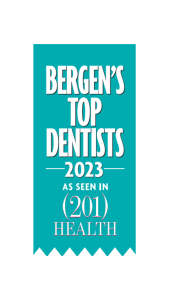Maintaining excellent oral health is more than just about having a bright smile; it’s a cornerstone of your overall well-being. Poor oral hygiene can lead to issues like gum disease, tooth decay, and even systemic health problems such as heart disease or diabetes. If you’re looking to improve oral health, incorporating simple yet effective habits into your daily routine can make a world of difference. In this blog, we’ll explore 10 essential oral health tips that are backed by dental science and easy to implement. Whether you’re aiming to boost oral health for yourself or your family, these dental hygiene tips will help you achieve a healthier mouth and a more confident you.
From brushing techniques to dietary choices, these strategies focus on prevention and long-term care. By following these tips, you can reduce the risk of cavities, freshen your breath, and maintain healthy teeth and gums for years to come. Let’s dive in and uncover how small changes can lead to big improvements in your oral hygiene.
1. Master Your Brushing Technique for Optimal Oral Health Tips
One of the most fundamental oral health tips is to brush your teeth properly, twice a day for at least two minutes each time. But it’s not just about the frequency; technique matters immensely if you want to effectively improve oral health. Use a soft-bristle toothbrush and fluoride toothpaste to gently clean all surfaces of your teeth, including the fronts, backs, and chewing surfaces. Hold your brush at a 45-degree angle to your gums and make short, circular motions rather than aggressive back-and-forth scrubbing, which can wear down enamel and irritate gums.
Why does this boost oral health? Proper brushing removes plaque, a sticky film of bacteria that forms on teeth and can harden into tartar if not addressed. Tartar buildup leads to gum inflammation (gingivitis) and, if untreated, periodontitis, which is a leading cause of tooth loss in adults. To enhance your daily oral care routine, replace your toothbrush every three to four months or sooner if the bristles fray. Electric toothbrushes can be particularly effective for those who struggle with manual dexterity, as they provide consistent motion and often include timers to ensure you brush long enough.
Incorporating this dental hygiene tip can also prevent tooth decay by strengthening enamel through fluoride exposure. Studies show that consistent brushing reduces cavity risk by up to 50%. If you’re prone to sensitive teeth, opt for desensitizing toothpaste to make the process more comfortable. Remember, brushing right after acidic meals can erode enamel, so wait 30 minutes to an hour for better results.
2. Floss Daily to Maintain Healthy Teeth and Gums
Flossing is often overlooked, but it’s a crucial dental hygiene tip that directly impacts your ability to boost oral health. While brushing cleans about 60% of tooth surfaces, flossing reaches the tight spaces between teeth and under the gumline where food particles and plaque hide. Aim to floss at least once a day, preferably before bedtime, using about 18 inches of floss wrapped around your fingers. Gently slide it between teeth, curve it into a C-shape against each tooth, and move it up and down.
This practice helps prevent gum disease and bad breath by removing debris that brushing misses. If left unchecked, interdental plaque can cause inflammation, bleeding gums, and eventual bone loss around teeth. For those new to flossing or with dexterity issues, water flossers or interdental brushes offer effective alternatives. These tools can be especially helpful for people with braces, bridges, or implants, making it easier to improve oral health without frustration.
Regular flossing also supports heart health, as research links chronic gum inflammation to increased cardiovascular risks. To make it a habit, keep floss in visible spots like your bathroom counter or nightstand. Over time, this simple addition to your daily oral care routine will lead to firmer gums, fewer cavities between teeth, and a fresher mouth overall.
3. Incorporate Mouthwash into Your Daily Oral Care Routine
Adding an antimicrobial mouthwash to your regimen is one of the smartest oral health tips for comprehensive protection. After brushing and flossing, swish with a fluoride or antiseptic rinse for 30-60 seconds to kill bacteria, reduce plaque, and freshen breath. Look for products with the American Dental Association (ADA) seal for proven efficacy.
How does mouthwash help boost oral health? It reaches areas that brushing and flossing might miss, like the back of the tongue and throat, where bacteria thrive. Therapeutic rinses can also strengthen enamel, reduce sensitivity, and combat early gingivitis. For those with dry mouth (xerostomia), alcohol-free options prevent further irritation while promoting saliva flow, which naturally cleanses the mouth.
In your quest to improve oral health, consider specialized mouthwashes for specific needs—such as whitening formulas for stain removal or those with essential oils for natural antibacterial action. Avoid using mouthwash immediately after brushing, as it can wash away fluoride benefits from toothpaste. Instead, use it midday for an extra refresh. Consistent use can lower your risk of cavities by 20-30%, making it a powerful ally in dental hygiene tips.
4. Adopt a Balanced Diet to Improve Oral Health Naturally
What you eat plays a pivotal role in maintaining healthy teeth and gums, making nutrition a key oral health tip. Focus on a diet rich in vitamins and minerals: calcium from dairy or leafy greens strengthens enamel, vitamin C from fruits supports gum health, and phosphorus from nuts aids tooth repair. Crunchy vegetables like carrots and celery act as natural toothbrushes, scrubbing away plaque while stimulating saliva production.
To boost oral health, limit sugary and acidic foods that erode enamel and feed harmful bacteria. Sugary snacks cause acid attacks lasting up to 20 minutes per exposure, increasing cavity risk. Instead, choose cheese or yogurt after meals to neutralize acids. Hydration is equally important; drinking water flushes out debris and maintains saliva levels, which buffer against decay.
This dental hygiene tip extends to snacking habits: opt for whole foods over processed ones to prevent tooth decay. For example, apples contain malic acid that naturally whitens teeth. A balanced diet not only improves oral health but also enhances overall energy and immunity, creating a holistic wellness cycle.
5. Quit Tobacco and Limit Alcohol for Better Dental Hygiene Tips
Avoiding tobacco in all forms—cigarettes, cigars, or smokeless—is essential if you want to seriously improve oral health. Tobacco stains teeth, causes bad breath, and increases risks of oral cancer, gum disease, and tooth loss. Nicotine restricts blood flow to gums, slowing healing and masking early signs of infection.
Similarly, excessive alcohol dries the mouth, reducing saliva’s protective effects and heightening cavity and erosion risks. To boost oral health, aim for moderation or abstinence. If quitting tobacco, seek support through patches, counseling, or apps—your mouth will thank you with whiter teeth and healthier tissues within weeks.
Incorporating this tip into your daily oral care routine means being mindful of habits that undermine your efforts. Regular checkups can catch tobacco-related issues early, reinforcing the importance of professional care in dental hygiene tips.
6. Schedule Regular Dental Checkups to Prevent Tooth Decay
Professional cleanings every six months are non-negotiable oral health tips for long-term success. Dentists remove tartar that home care can’t touch, check for early decay or disease, and provide personalized advice to improve oral health.
These visits prevent minor issues from escalating, saving time and money. X-rays detect hidden problems like impacted teeth or bone loss, while sealants or fluoride treatments offer extra protection. For families, instilling this habit early teaches children the value of dental hygiene tips.
Boost oral health by preparing for appointments: note concerns like sensitivity or bleeding. Consistent checkups reduce cavity risk by 40% and promote early intervention for conditions like bruxism (teeth grinding).
7. Use Proper Tools and Techniques in Your Daily Oral Care Routine
Selecting the right tools elevates your dental hygiene tips. Soft-bristled brushes prevent gum recession, while tongue scrapers reduce bacteria for fresher breath. For interdental cleaning, waxed floss glides more easily for beginners.
To improve oral health, learn techniques like the Bass method for brushing—focusing on the gumline to remove plaque effectively. Apps can track habits, ensuring consistency in your daily oral care routine.
This approach minimizes wear and maximizes protection, leading to fewer dental issues over time.
8. Stay Hydrated to Maintain Healthy Teeth and Gums
Water is a simple yet powerful tool to boost oral health. It rinses away food particles, dilutes acids, and promotes saliva, which remineralizes enamel and fights bacteria.
Aim for 8-10 glasses daily, especially after meals. Fluoridated water strengthens teeth naturally, making it a top dental hygiene tip for cavity prevention.
Hydration supports gum health by preventing dry mouth, a risk factor for decay. Swap sugary drinks for water to improve oral health effortlessly.
9. Protect Your Teeth from Injury and Wear
Wearing mouthguards during sports or for nighttime grinding is a proactive oral health tip. Custom-fitted guards from dentists offer superior protection against chips, fractures, or jaw issues.
To prevent tooth decay from erosion, avoid chewing ice or using teeth as tools. This maintains healthy teeth and gums, reducing emergency needs.
Incorporating protection into habits boosts oral health longevity.
10. Manage Stress for Holistic Ways to Improve Oral Health
Stress leads to clenching or poor habits like nail-biting, which can harm teeth. Relaxation techniques like meditation reduce these risks, supporting dental hygiene tips.
Better stress management improves oral health by encouraging consistent care routines.
Transform Your Smile with Expert Care at Chestnut Ridge Dental
By embracing these 10 essential oral health tips, you’re taking proactive steps toward a radiant smile and lasting wellness. From mastering your brushing technique to prioritizing regular dental checkups, these strategies empower you to improve oral health and prevent issues like tooth decay and gum disease. For personalized care that elevates your dental journey, trust Chestnut Ridge Dental in Woodcliff Lake, Bergen County, NJ. Led by Dr. Samuel Mufson and a team of compassionate experts, Chestnut Ridge Dental specializes in painless dentistry, advanced dental anesthesiology, and emergency care, ensuring every visit is comfortable and effective. As a participating provider with Delta Dental and other major insurances, they combine cutting-edge techniques with a patient-first approach to help you maintain healthy teeth and gums. Don’t wait to unlock your best smile; contact us to schedule your appointment today and experience dental care that transforms lives.
FAQs
What are the best oral health tips for beginners?
Start with basics like brushing twice daily, flossing, and using mouthwash. Build from there with dietary changes to improve oral health gradually.
How can I improve oral health naturally at home?
Focus on a balanced diet, hydration, and natural cleaners like baking soda scrubs. These dental hygiene tips complement professional care.
Why is flossing important in daily oral care routines?
Flossing removes plaque between teeth, preventing gum disease and cavities to boost oral health effectively.
How often should I visit the dentist to maintain healthy teeth and gums?
Every six months for checkups and cleanings, or more if you have risks like diabetes.
Can diet really help prevent tooth decay?
Yes, reducing sugars and increasing nutrient-rich foods strengthens enamel and reduces acid attacks.
What if I have sensitive teeth—any specific dental hygiene tips?
Use desensitizing toothpaste and soft brushes; avoid extremes in temperature to improve oral health comfortably.





